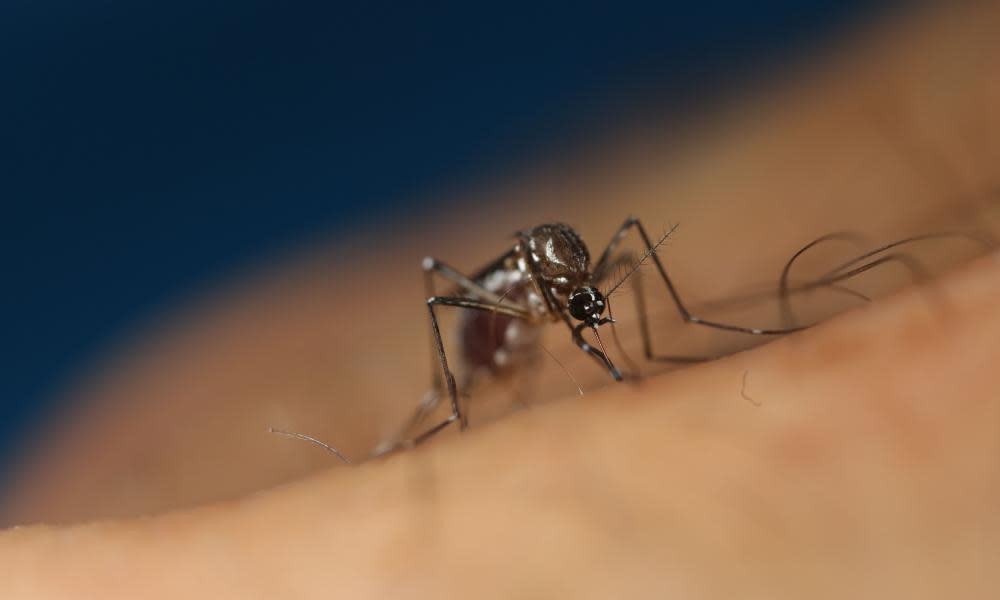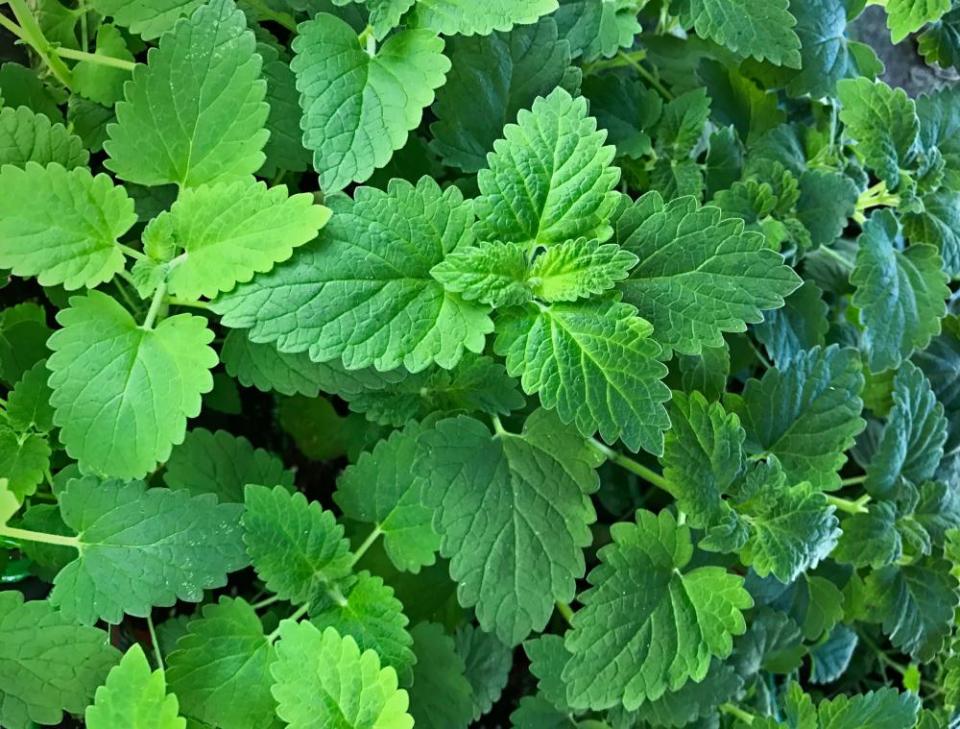Buzz off! Effective ways to deter bites during Australia’s monster mosquito season

“Got it!” says my husband, wielding a tennis bat-like zapper in his PJs, as I blearily lie my head back on the pillow, praying the rest of the night will be free from incessant buzzing and bites.
Our weapon of choice works well for us, once we find the elusive little vampires. Across the world, people use all manner of deterrents, from eating garlic and soaking cigarette butts in alcohol to burning animal dung, spraying diesel and Windex, or drinking gin and tonic. Then there are ultrasound wristbands, sonic plug-in emitters and carnivorous plants.
These desperate measures aren’t just devised to avoid a pesky irritation. Some mosquitoes can transmit diseases, in Australia most commonly Ross River virus.
You don’t want Ross River virus because you can be quite unwell
Prof Craig Williams
This year’s wet spring and summer are tipped to produce extra fertile breeding conditions as La Niña weather patterns create more rainfall – particularly in the north and east.
“This is probably the greatest risk I’ve seen for the 35 years I’ve been working on mosquitoes,” says Prof Stephen Doggett from Sydney’s Westmead hospital of the risk of mosquito-borne disease.
“We’ve had two years running when it’s been extremely wet and it’s situations like that when we have a greater risk of the really nasty mosquito-borne viruses, especially for south-eastern Australia.”
Mosquitoes need still pools of water to breed successfully, so their populations are impacted by weather and related conditions. But only a very small percentage of the 300 species in Australia – which has less than 10% of those found globally – transmit diseases.
Related: Infectious diseases and vaccines: A brief history
Dengue fever, one of the more serious mosquito-borne viruses, occasionally makes its way to northern Australia. Malaria, another notorious deadly virus transmitted by mosquitoes, was eradicated here in the 80s. Both diseases tend to occur in people who have picked them up overseas. However, some Australian mosquitoes do carry risk of serious disease.
“You don’t want Ross River virus because you can be quite unwell,” says Prof Craig Williams, a mosquito expert from the University of South Australia. “But there is Murray Valley encephalitis, a mosquito-borne disease, and it’s lethal. And those it doesn’t kill, it neurologically affects them for the rest of their life.”
This rare brain-affecting virus occurs mostly in northern Australia. But in some wetter years it can be found in central and southern Australia. “So that’s a worry,” says Williams. “It’s not that common in terms of human cases, but if you’re travelling, it’s just not worth getting bitten by a mosquito.”
So, which of the myriad methods to avoid getting bitten actually work? And are there other safety concerns with those that do?
Deet is considered the most effective and long-lasting topical repellent, although many people are concerned about toxicity. While some studies have shown potential health impacts from using it, Deet is generally considered safe when used correctly.
The Royal Children’s hospital in Melbourne advises that products containing up to 10% Deet are suitable for children in areas with a low risk of mosquito-borne diseases, while products containing up to 19.5% Deet are suitable for children in high-risk areas.

Other studies report varying levels of protection using plant-based repellents, which contain phytochemicals that plants evolved as a defence mechanism. Generally, more research is needed into their efficacy.
A 2019 study in Nature showed how catnip, reported to be at least as effective as chemical repellents like Deet, repels mozzies by activating an irritant receptor. PMD from lemon eucalyptus extract also has demonstrated efficacy in preventing malaria, and is the only plant-based repellent advocated by the US Centers for Disease Control.
An Australian study, from the University of Sydney and Westmead hospital, found that wristbands impregnated with botanicals could help deter some mosquito landings, but they were not as effective as Deet and would not protect your whole body.
It is important to be vigilant and use the most reliable product possible if you’re in a risk area for mosquito-borne disease, says Doggett. He warns that ineffective methods or not reapplying repellents regularly can create a false sense of security.
If you don’t suffer from asthma, Williams says citronella or sandalwood coils or burners can help as a second line of defence outside. “I set them up as a kind of boundary, a barrier around the back deck.”
What about carnivorous plants? Sure, they might attack a few mosquitoes in the bedroom, “but if you’ve got 10,000 mosquitoes flying about, that’s not going to do much”, says Doggett.
For inside the home, some plug-ins claim to repel mozzies using sound, but Williams says there’s no evidence to support their effectiveness.
Other plug-in options include repellents that release odourless insecticides into the air. These are reportedly effective, but again, some may be concerned about health impacts. Outside of the home, Williams cautions against using insecticides that kill other beneficial insects such as pollinators.
The humble household fan, on the other hand, is very helpful. “A fan will work because mosquitoes generally try to avoid the wind,” Williams says. “If you get above a certain wind speed they won’t be able to fly, so that will be an aid for sure.”
Both Williams and Doggett also endorse the commonsense ways of avoiding bites: staying inside at dawn and dusk, if possible, especially in infested areas; wearing long-sleeved, loose clothing; ensuring screens are on windows and doors are kept shut; and making sure your garden is free from pools of still water (even in the bottom of pot plants).
More broadly, concerned citizens are involved in a Mozzie Monitor public health initiative. “We’re really looking to safeguard Australia through a diverse and diffuse citizens’ surveillance network,” says Williams. The citizen science program aims to help make assessments of risk, detect changes in patterns of mosquitoes and enable rapid response if exotic disease-carrying species are detected.
Being involved may even result in becoming enamoured by the little critters. “There’s a lot of incredibly extraordinary mosquitoes on this planet,” says Doggett, who is writing a book about the world’s weirdest species. “I want to look at the other side of mosquitoes, their amazing behaviour, the diversity. And some are extremely beautiful.”
Williams agrees. “Some of them are very pretty,” he says, referring readers to photos on iNaturalist. “And there are ones that don’t feed on blood, they feed on nectar from flowers, and there are bright orange ones and little tiny black, silvery ones.”
They also form a vital part of the food web, says Doggett. A world without mosquitoes would mean “there’s wholesale environmental damage”.
“If we didn’t have them, the world would be screwed.”


